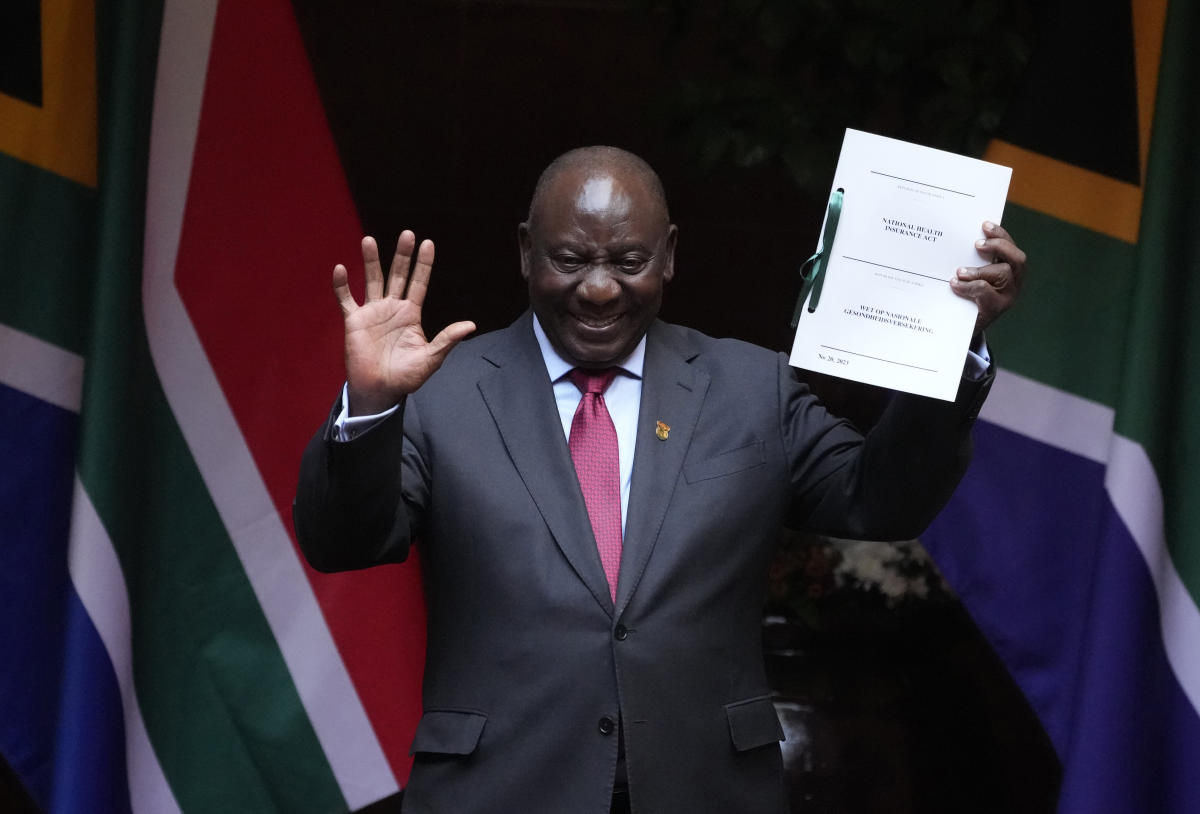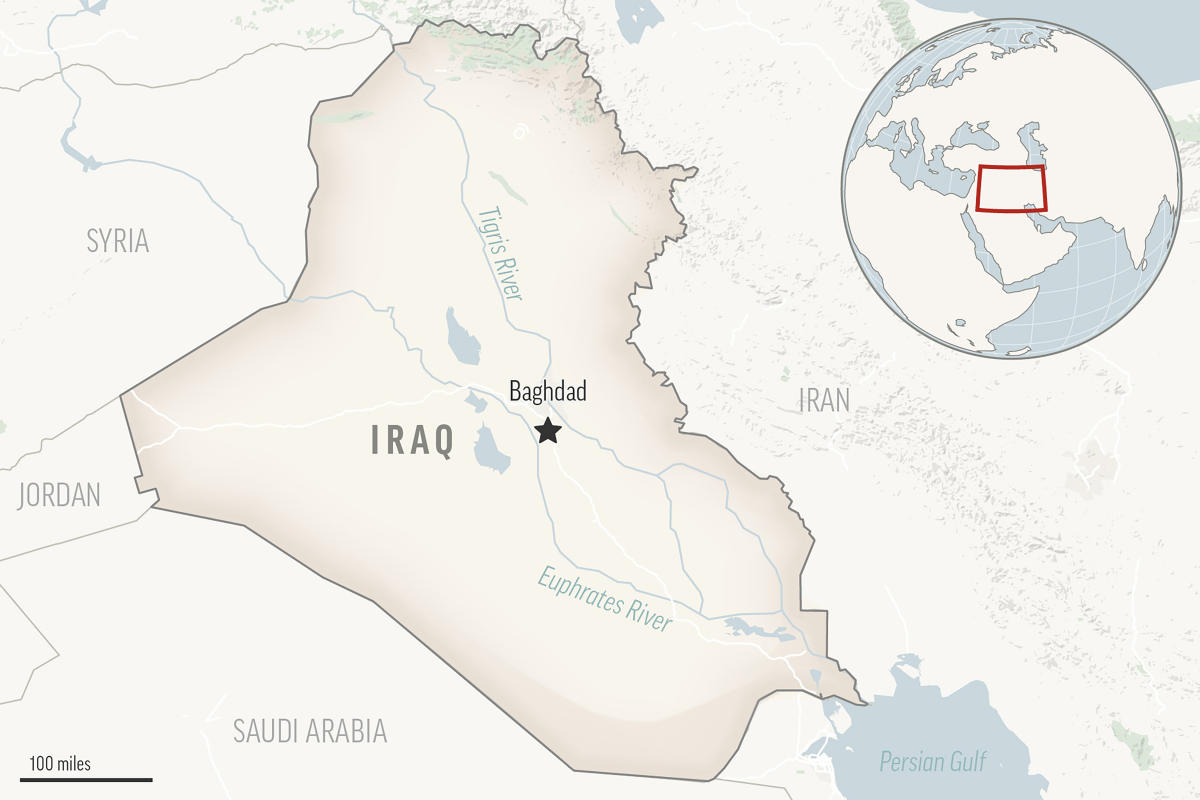CAPE TOWN, South Africa (AP) — The focus for next week’s national elections in South Africa is on the fate of the African National Congress party and whether it will lose its parliamentary majority for the first time, as many expect .
Several opinion polls put support for the ANC below 50% ahead of Wednesday’s vote, raising the prospect that it may not be the majority party for the first time since Nelson Mandela took control of the government. victory led in the first all-race elections. ended white minority rule in 1994.
But it is still widely expected that the ANC will be the largest party.
Here’s how no clear majority would bring about unprecedented political change and complicate how the president is elected and how the government works in Africa’s most advanced economy:
ELECTION OF THE PRESIDENT
In the absence of a majority party, the most immediate impact would be on how the president is elected and whether ANC leader and current president Cyril Ramaphosa is re-elected for a second and final five-year term.
The president is the head of state and has executive powers, but South Africans do not vote directly for the president in national elections, but vote for political parties. These parties are given seats in parliament based on their share of the votes. Lawmakers then elect the president in the first session of the legislature after the election.
The vote takes place in the lower house of parliament, known as the National Assembly, and requires at least 201 votes from the 400 lawmakers to elect a president. The ANC has always had a majority in parliament since 1994 and therefore the president has always been from the ANC.
Without a majority, the ANC would need a coalition or agreement with another party or parties to get Ramaphosa re-elected. The president could even come from another, smaller party if that is the deal, although that is highly unlikely.
NATIONAL COALITION
The word coalition is making South Africans nervous after a series of spectacular failures at local government level, including in Johannesburg, the country’s largest and most economical city. There, the failure of numerous agreements between parties has led to major problems in running city services. Other towns and cities have had similar experiences, including the administrative capital Pretoria.
But some form of national coalition government is a real possibility due to the ANC’s declining support and would be uncharted waters for South Africa.
While a coalition can reflect the democratic will of the people, some analysts say it could also be bad for the South African economy. It increases the risk of government instability and could lead to muddled policies, delaying foreign business investment at a time when South Africa desperately needs it.
SMALL PARTIES, BIG SAYINGS
There are no indications who the ANC could approach as a coalition partner and for now all options appear to be on the table. The ANC has maintained during the election campaign that it is not thinking about coalitions and is focusing on maintaining its majority.
If the predictions come true and the ANC loses its majority, it could go straight to the official opposition Democratic Alliance party for a coalition. It is unclear whether that is feasible, because the prosecutor has been so critical of the ANC and Ramaphosa, as have the two other major parties.
Instead, the ANC could go to a number of smaller parties with a small vote share to put together a coalition that would take their combined share to well over 50% and form a government.
There are dozens of parties running in the elections, many of which are new and some that were expected to receive only a few percent of the vote, but they could suddenly become a major voice in South African politics. These smaller parties would want something in return, whether it concerns cabinet positions, some input into policy or even control over entire ministries.
OTHER OPTION
Some South African political commentators have started talking about a possible national unity government, in something of a repeat of what happened just after the white minority system of apartheid ended three decades ago. Mandela then invited other major parties into his government to seek some unity, while South Africa took its first, uncertain steps as a democracy and wrote a new constitution.
It was an act of reconciliation to bring a broken country together, although others doubted it would work for South Africa now. For starters, if all the major political parties were part of the government, who would hold them accountable?
___
AP Africa News: https://apnews.com/hub/africa







